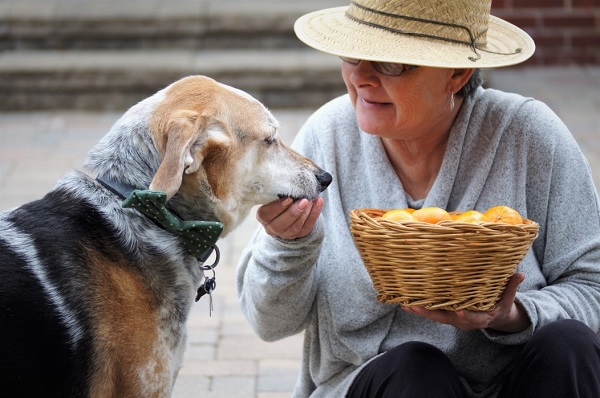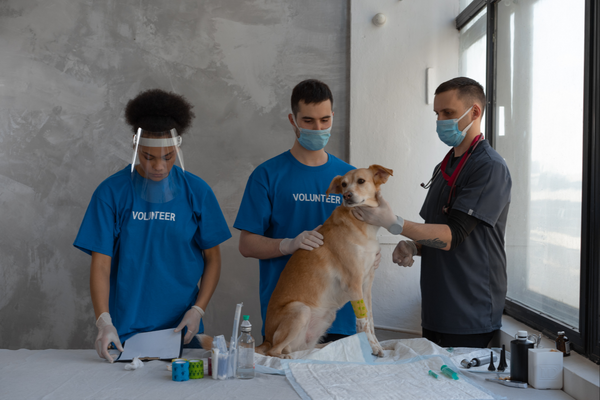Dogs are one of the humans’ best friends, and what could be better than getting a small puppy from the nearest shelter home. When you are seeking a furry companion, then rescue puppies are ideal for dog lovers.
Rehoming a shelter dog is perfect for those who know the adorable furry creatures. Whether you recently lost your pet and are looking for another one or want to rescue a new breed puppy to give a companion to your present dog – shelter dogs are becoming a popular option for many animal lovers.
Getting a pet home is a significant decision, especially if it is a rescue dog, it calls for some profound changes and lifestyle decisions. Remember that you are not just getting any dog but a rescue dog, and therefore, there will be certain Dos and Don’ts with it.
Let’s explore the pointers for consideration before Bringing Home A Rescue Puppy:
- Discuss with all the family members. You need to decide before heading to the dog shelter. Ensure that everyone in the family has a welcome attitude towards bringing the pet home. Learn to understand that it is a huge responsibility and not just one day picnic. It’s a long-term commitment with chores like feeding, bathing, walking, and primary caretaking.
- Draw the house rules before bringing the puppy home. It is always better to sketch out the rules. So on the arrival of the new member, you do not have conflicting messages.
- If you have existing pets at home, ensure that the new addition is compatible with all. You do not want fights and accidents later.
- Gather as much as information and conduct in-depth research about the new pet you will be bringing home. The details of food habits, breed, vitals, vaccination details, and background.
- Consider the cost. It includes adoption fees, vet visits, pet registration, pet accessories, pet care kits, and insurance charges.
- Ascertain the space for the dog and ready it accordingly. You can either pick a room with a cozy corner with warm blankets for the puppy to snuggle and stay comfortable. Or you can get a dedicated pen for the puppy with all safety proofing and warm blankets.
- Get dog-proof items to patch the house as, the younger dogs tend to damage loose wires, footwear, rugs, open shelves, and upholstery. It is like babyproofing the house – tape the electric wires, store the chemicals on higher shelves, remove indoor plants, brittle items, glassware, and lamps before bringing the puppy home.
- Ensure safety and comfort of the dog when leaving him/her alone at home but installing temporary barriers, gates living spaces, and leaving the lights ON.
After all these preparations and proofing, be ready to embrace some scratches, damages, and breakages in the house. You must understand that bringing a small puppy home is like raising a small child and the possibility of innocent incidents are normal.
Prepare for behavioral issues
Some rescue animals may exhibit behavioral problems that can be aggressive to passive. You must have a patient approach in dealing with both behaviors. Aggression may include snarling, biting, growling, and pouncing. Passive behavior includes being scared, non-responsive, shy, timid towards humans.
Most of the rescue dogs have a history that decides the present behavior. It is always advisable to get a better and deeper understanding of the past life and environmental conditions they were living in to treat the problems.
Make a smart choice
It might seem overwhelming when you see so many breeds of puppies in the shelter. Hence, it is advisable to use your head to make a smart choice of pet. It is easy to fall in love with all the cutest looking creatures but, the attachment should not build when making a choice. Speak with the staff animal shelter to make the right decision.
Arrange for training
You may prefer to self-train the dog or hire a professional – this is a personal choice. Hiring professional trainers will help you understand the dog’s behavior better and faster. However, if you wish to self-train, start the process within a few days of the arrival of the puppy.
The first few days and nights are tough for both – dog and rescuer but, gradually the situation calms and would see a remarkable change in the dog’s behavior. You can start the training by setting a routine and conveying the rules of the home. Teach the puppy basic manners and tricks.
The most crucial point in training any shelter dog is determining the master. Let not everybody in the family give instructions to the dog. Rather one person can be the authority. All the family members can show care, affection, and play with the puppy. However, when giving orders, it should always be one. This way, you do not confuse the small creature.
You must encourage them by giving healthy treats on simple accomplishments. Show appreciation and encourage the puppy to repeat the good behavior. Discourage eating from family members’ plates and never feed food scarps. It develops unhealthy and undisciplined eating habits.
How long does it take for shelter dogs to feel at home?
The rescue dog may take more than a month to adjust to the unfamiliar environment. It depends on the age of the pet, breed, history, and health condition. No one can decide the time for adjustment – the first few nights are crucial.
Generally, the first seven nights are significant in settling for any pet from the shelter house. Just be patient and pour all the compassion to help the family welcome the new furry member.

 DogExpress
DogExpress


















 in Chandigarh, India.
in Chandigarh, India. 
